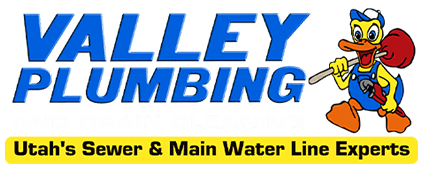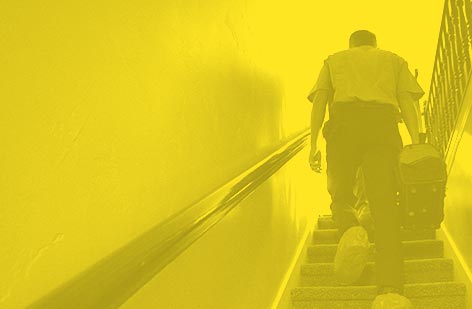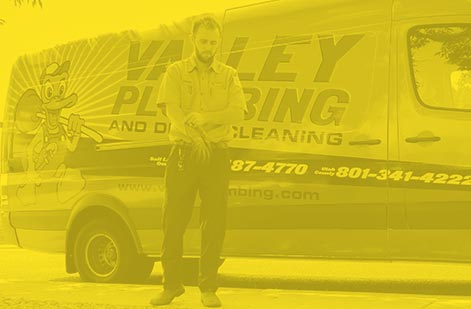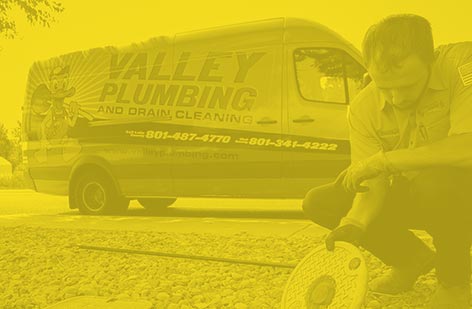Many sewer and drain problems can be repaired without having to excavate or dig in your yard. However, a time comes when partial or total excavation is inevitable. While excavation may seem like a tough and stressful job, Valley Plumbing and Drain Cleaning have years of industry experience so you can count on a job well done.
Our team has the right expertise and state of the art machinery to perform plumbing excavation with minimal disruption to your property in Salt Lake City, UT. We know how critical it is to have a healthy plumbing system, which is why you can count on us to complete your excavation on schedule.
We have built a reputation for excellence. Read our customer reviews to see why we’re the name customers trust for excavation services.
When You Might Need Excavation Services
There are plenty of reasons you may need to call an excavation plumber. If you’re adding a new driveway, clearing a lot for some reason, digging a new basement, or demolishing a building, then you might need professional excavation services. The same applies if you’re building a new home and need underground utilities installed.
At Valley Plumbing and Drain Cleaning, we have an extensive range of excavation services for plumbing needs, including:
- Excavation
- Trenchless Sewer Line Repair
- Main Sewer Lining
- Video Sewer Inspection
- Drains Services
- Drain Cleaning
- Hand Sink Repair
- Kitchen Sink Repair
- Main Water Line
- Trenchless Water Line Replacement
- Sewer Line Repair
Diagnostics for Efficient Excavation
Our plumbers have been serving the Salt Lake City community for over a decade, and in that time, we’ve seen and done it all as regards plumbing. With our top-of-the-line inspection equipment, we can accurately locate the source of your problem and resolve it effectively. We never rush into a decision.
Our excavation team will assess the situation and take the time to help you understand your options. From blockages due to tree roots to collapsed pipes, we can provide fast, effective service and restore your property to normal in no time.
Check our coupons page for the chance to save on our services.
Why Choose Us?
Sewer or water lines can break or crack for any number of reasons, including severe root infiltration, mold, rust, ice damage, and more. Whatever the problem, you can trust us to provide a sustainable solution.
Some of the reasons to choose us for your excavation include:
- We are a family-owned and run plumbing company.
- We genuinely care about our customers and work hard to exceed their expectations.
- Our plumbers are extensively trained and highly skilled.
- We Have been helping customers with plumbing issues for over a decade.
Frequently Asked Questions
Under what circumstances is it necessary to excavate for plumbing?
Primarily when repairing or replacing underground pipes, such as the main water line or sewer lines. Excavation might be required to access and repair damaged or leaking pipes, clear blockages caused by tree roots or debris, or install new plumbing lines. Additionally, excavation is often necessary during major renovations or construction projects to lay new pipelines or reroute existing ones.
What are the frequent causes that lead to the need for plumbing excavation?
Frequent causes necessitating plumbing excavation include repairing or replacing damaged underground pipes due to aging, corrosion, or wear and tear. Tree root intrusion into pipes seeking moisture and nutrients often requires excavation to remove the roots and repair the damage. Additionally, major blockages caused by debris buildup, collapsed pipes due to ground shifting or settling, or the need to install new plumbing lines during renovations or upgrades are common reasons for plumbing excavation. When conventional repair methods are inadequate, excavation becomes necessary for accessing and resolving issues within the plumbing system effectively.
How do I know if excavation is required for my plumbing problem?
Determining if excavation is necessary for your plumbing problem often involves professional assessment. Signs that may indicate the need for excavation include recurring issues despite attempted repairs, visible signs of pipe damage or collapse, extensive blockages due to tree roots or debris, or a sudden and unexplained drop in water pressure. Professional plumbers, like those at Valley Plumbing, use specialized equipment and inspection methods such as cameras and leak detection tools to assess the extent of the problem.
What are the typical procedures involved in the process of plumbing excavation?
Initially, the area is marked and prepared for digging, considering safety precautions and potential underground utilities. Excavation equipment, such as backhoes or trenchers, is used to dig trenches along the path of the plumbing lines. Once the pipes are exposed, the damaged or affected section is assessed and repaired or replaced as necessary. After the repairs, the trenches are backfilled, and the soil is compacted.
Generally, at what depth are plumbing pipes installed underground?
Typically, water supply pipes are buried at a depth ranging from 12 to 36 inches (30 to 91 centimeters) below the ground surface. However, this depth can vary based on factors such as the pipe material, local frost lines, soil conditions, and the type of plumbing—water supply, sewer lines, or drainage pipes. Sewer lines are usually deeper, often ranging from 18 to 60 inches (46 to 152 centimeters) or more below the surface.
Are there non-invasive alternatives to excavation for fixing plumbing issues?
Yes, several non-invasive alternatives exist for fixing certain plumbing issues without the need for extensive excavation. Trenchless technologies offer innovative methods such as pipe lining and pipe bursting. Pipe lining involves inserting a new lining into the existing pipe, creating a seamless and durable inner layer, effectively repairing leaks or damages. Pipe bursting replaces the old pipe by breaking it apart and pulling a new pipe through the same path. These methods reduce the need for extensive digging, minimizing disruption to landscaping and property, and are often used by professional plumbing services like Valley Plumbing for efficient and less invasive repairs.
What is the usual duration required to complete a plumbing excavation?
The duration required to complete a plumbing excavation can vary significantly based on several factors such as the scope and complexity of the project, the length and depth of the trenching needed, the condition of the pipes, and the extent of repairs or replacements required. Smaller-scale excavations for minor repairs might take a day or two, while larger projects involving extensive repairs or installations could span several days or even weeks. The involvement of factors like weather conditions and unforeseen complications can also influence the timeline.
Is it possible to avert the requirement for plumbing excavation?
In certain cases, it's possible to avert the need for plumbing excavation by employing proactive measures. Regular maintenance, timely repairs, and preventive measures can help prevent severe issues that might necessitate excavation. Regular inspections can detect and address minor problems before they escalate into larger issues requiring excavation. Moreover, using non-invasive techniques like trenchless technologies for certain repairs or opting for proactive measures, such as installing root barriers to prevent tree root intrusion, can help minimize the likelihood of excavation. However, in some instances, when major issues arise or if pipes are severely damaged, excavation might still be necessary.




